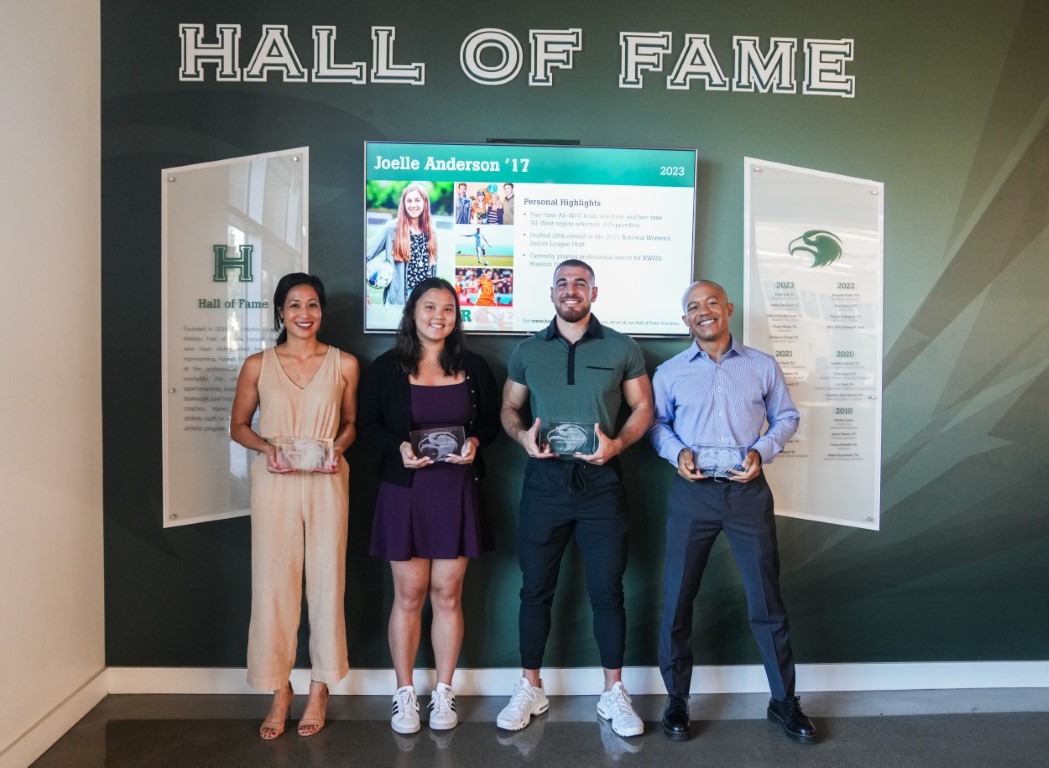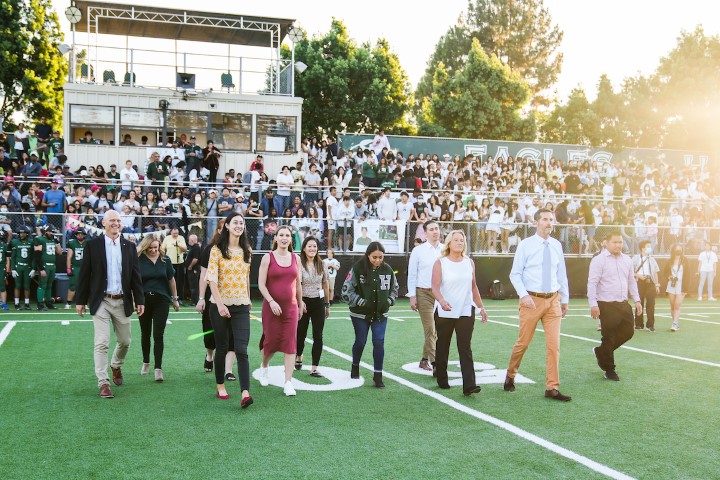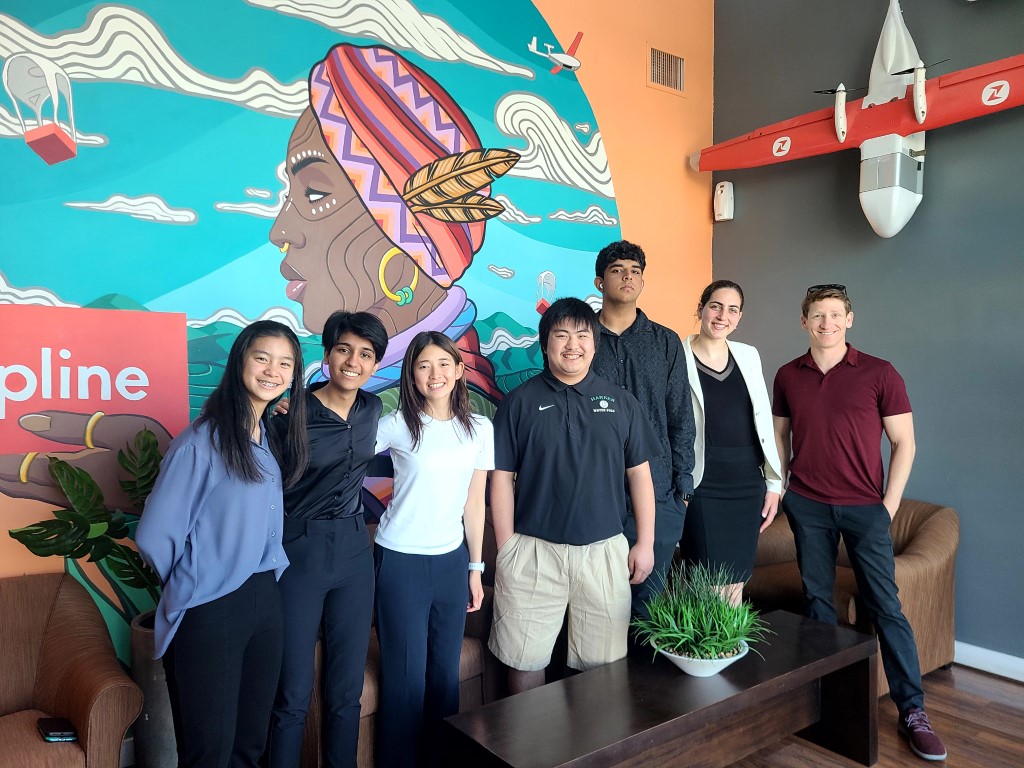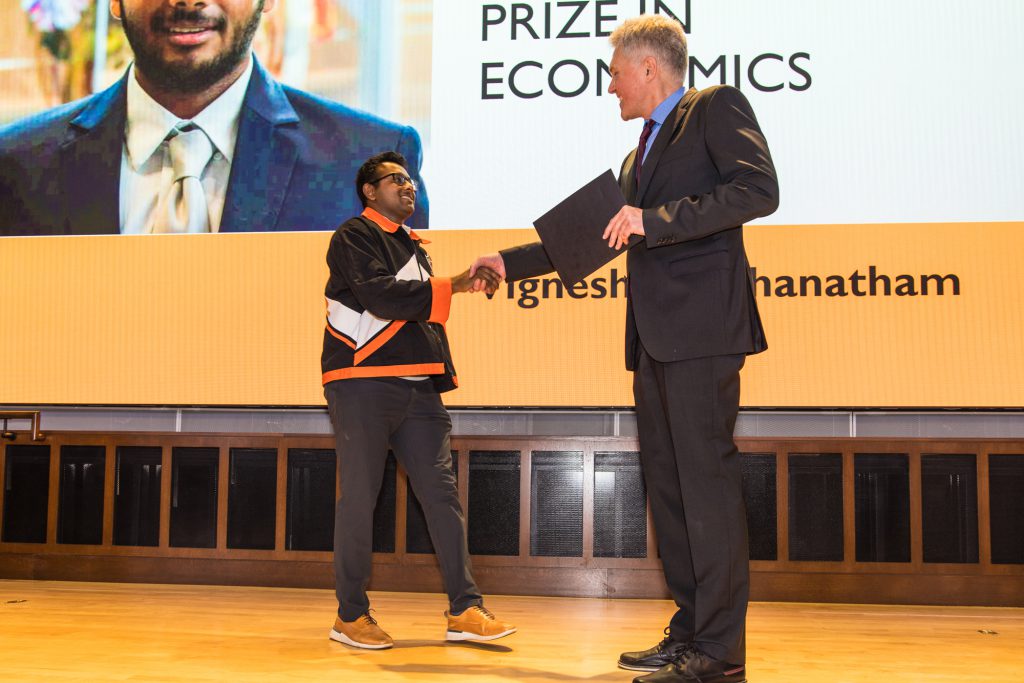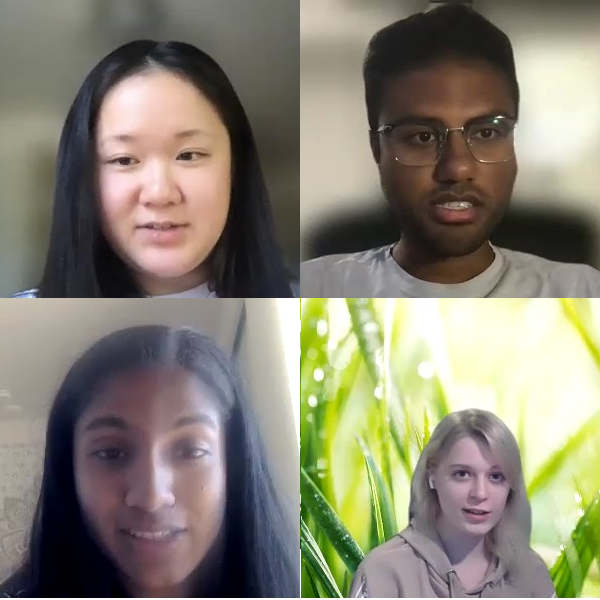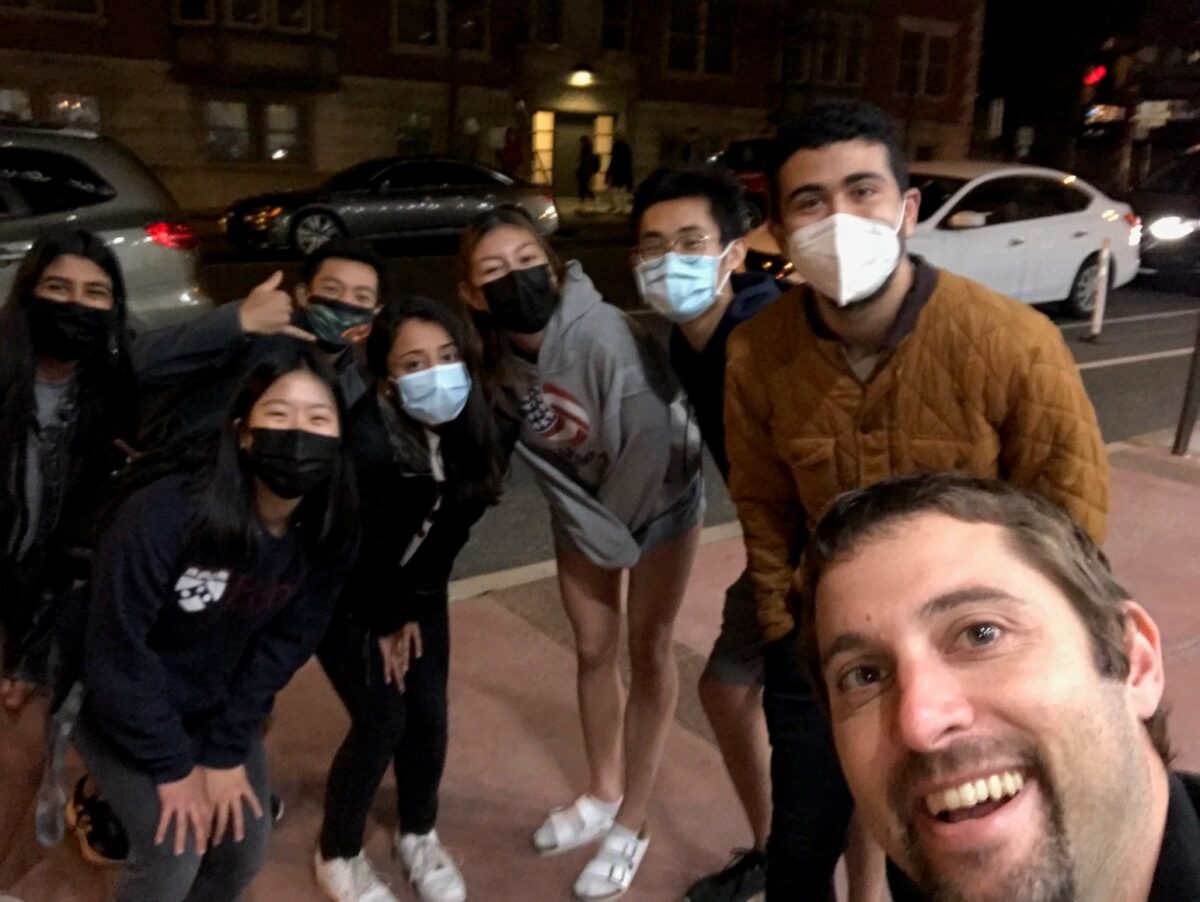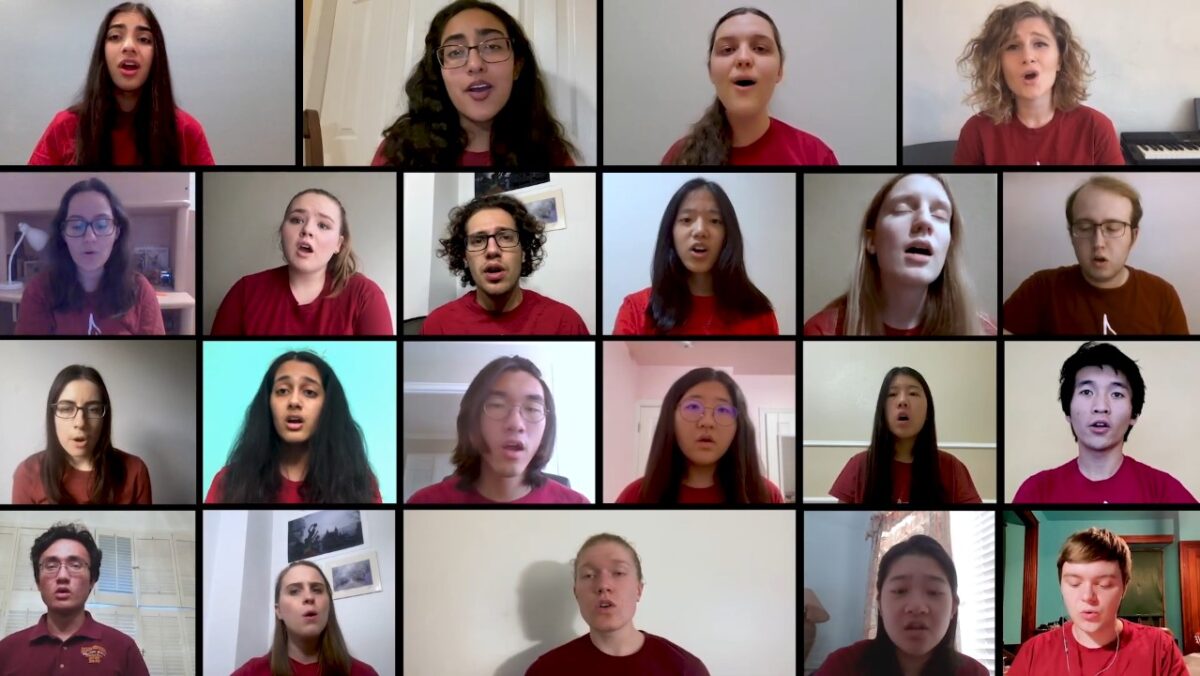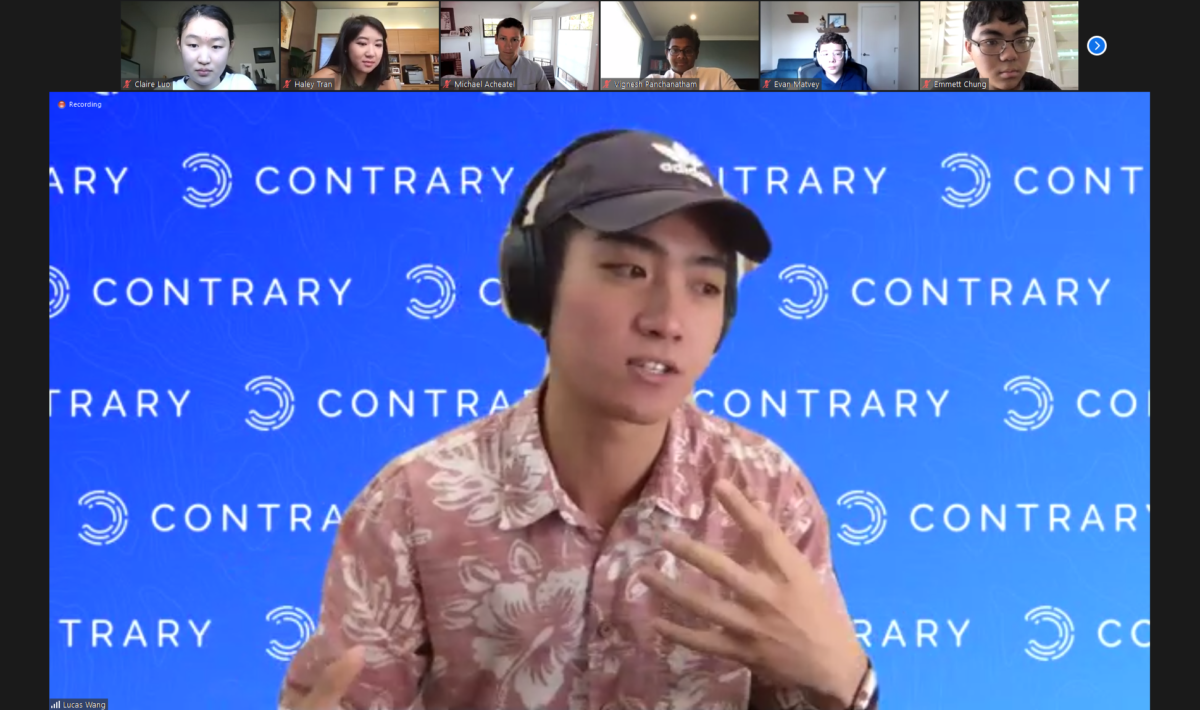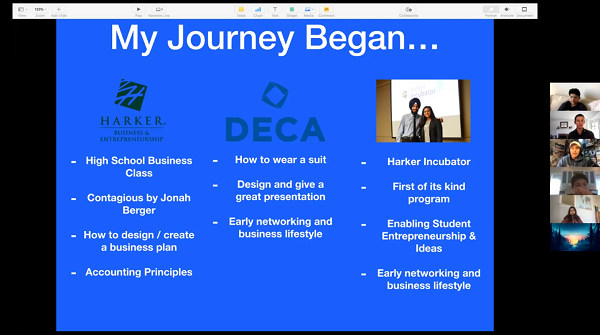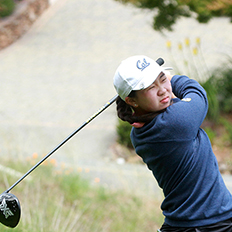Harker alums Joelle Anderson ’17, Ryan Cali ’10, Christopher McCallaCreary ’11, Rebecca (Chang) Kaloudis ’03 and Vivian Wang ‘18 were inducted into the Harker Athletic Hall of Fame as part of the Harker Day celebration on Oct. 7.
Class of 2018
Annual Harker Day to include inaugural Alumni Reunion Weekend
The weekend of Harker Day, which will include a landmark event for Harker alums, who will have a full weekend of activities to look forward to.
BE students visit Zipline HQ, meet alum Anika Banga ’18
Business and entrepreneurship students visited the Half Moon Bay headquarters of Zipline, which manufactures and operates delivery drones for medical supplies as well as offering services for restaurants, food delivery and more.
Alum Panchanatham receives Princeton economics prize
In May, Vignesh Panchanatham ‘18 was presented with the Halbert White ‘72 Prize in Economics during the Princeton University economics department’s Class Day celebration.
Alumni research panel offers insight and advice to current students
Earlier this month, the Harker Research Club hosted a panel with Vikas Bhetanabhotla ‘14, Cynthia Chen ‘20, Anastasiya Grebin ‘18 and Ruhi Sayana ‘19, who spoke about their post-high school careers and offered advice on how to find research opportunities.
Upper school econ teacher and alumni catch up in Philly
Alumna-directed choir performs to benefit Black artists and activists
In November, Carnegie Mellon University’s D Flat Singers, for which Anika Banga ‘18 serves as musical director, took part in a virtual concert to raise money for 1Hood, a Pittsburgh-based organization that advances social justice causes through art.
Alumni panel helps students get the most out of upper school experience
On Sept. 25, CareerConnect held a Harker alumni panel via Zoom with Haley Tran ’17, Lucas Wang ’17 and Vignesh Panchanatham ’18.
B.E. alumnus guest lecturer discusses personal journey and ventures
Earlier this week, Michael Sikand ‘18 spoke to Michael Acheatel’s gave a special guest lecture to Micheal Acheatel’s business and entrepreneurship students.
